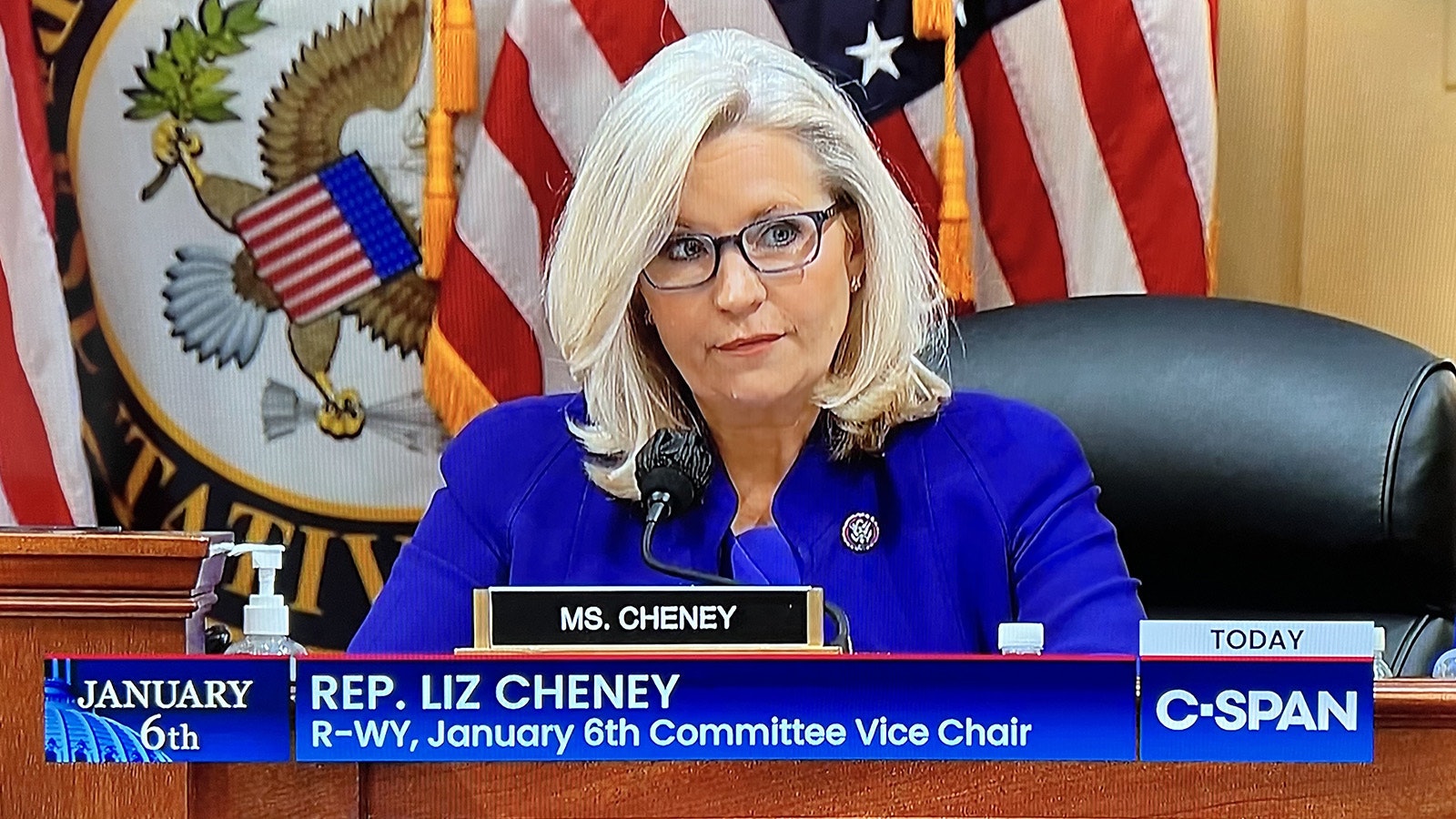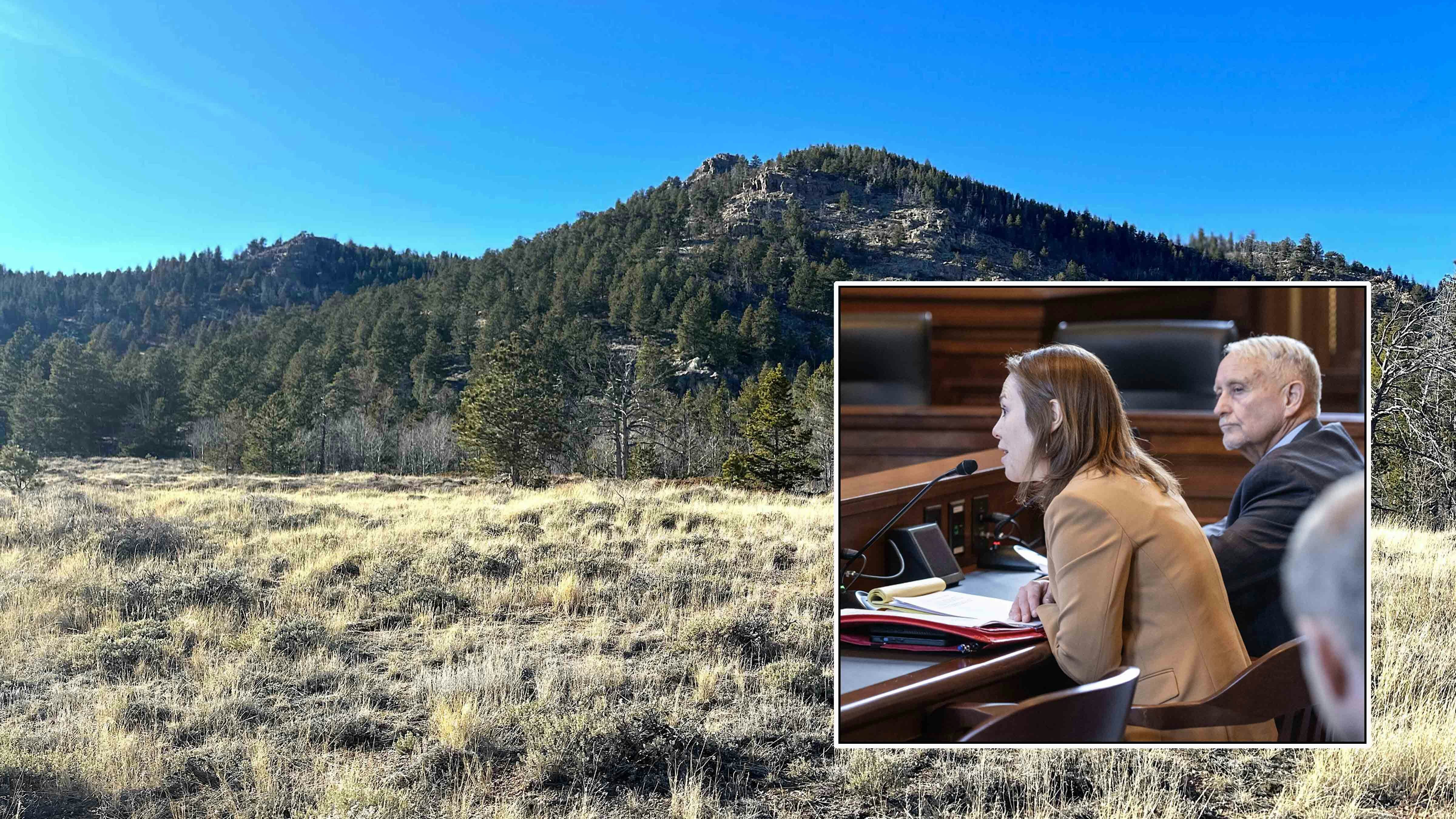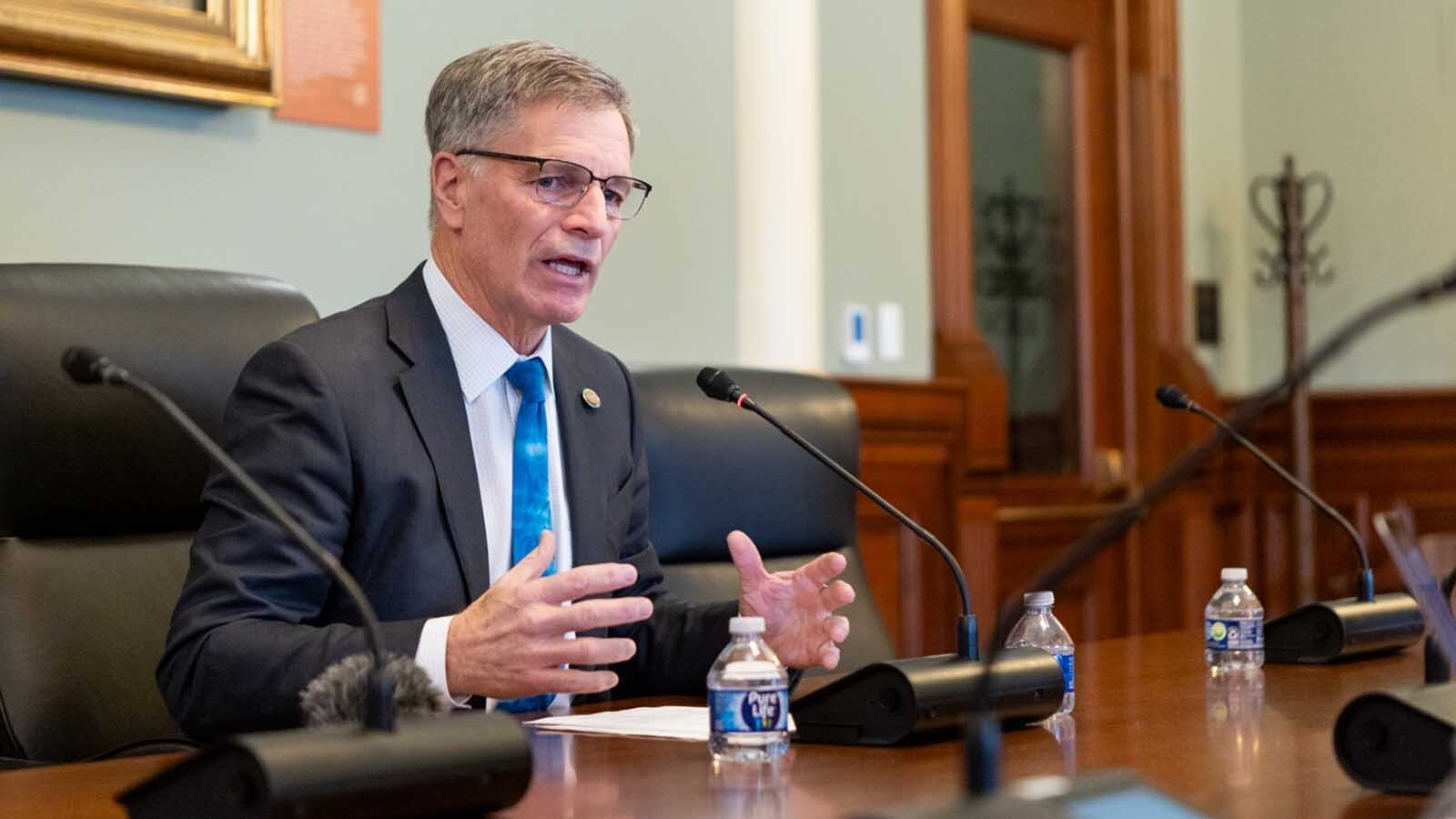By Leo Wolfson, State Politics Reporter
Leo@Cowboystatedaily.com
The U.S. House Select Committee on the Jan. 6 Attack is referring former President Donald Trump to the Department of Justice for criminal charges for his alleged role in the 2021 U.S. Capitol riot.
Sitting at center stage of the announcement during the committee’s meeting Monday afternoon was U.S. Rep. Liz Cheney. The Wyoming Republican was the first to cast a supporting “aye” to approve the committee’s final report.
‘Unfit For Any Office’
“Among the most shameful of this committee’s findings was that President Trump sat in the dining room off the Oval Office watching the violent riot at the Capitol on television,” said Cheney, vice chair of the committee, in her opening and only statement. “For hours, he would not issue a public statement instructing his supporters to disperse.
“He is unfit for any office.”
Cheney and the committee used its final meeting to summarize its findings and stitch together an overall narrative supporting criminal referrals against Trump.
As she has done many times in the past year, Cheney referenced a number of key American political figures while explaining the significance of Trump’s actions in a greater historical context.

Historical Context
First on her list was her great-great-grandfather Samuel Cheney, who served in the Civil War with the 21st Ohio Volunteer Infantry.
“I have found myself thinking often, especially since Jan. 6, of my great-great-grandfather, and all those in every generation who have sacrificed so much for the unity of our nation and the perpetuity of our institutions,” she said.
She also brought up comments made by former presidents George Washington, John Adams and Ronald Reagan regarding the need for a peaceful transition of power in American presidencies and the sanctity of elections.
“Every president in our history has defended this orderly transfer of authority, except one,” Cheney said. “Jan. 6, 2021, was the first time one American president refused his constitutional duty to transfer power peacefully to the next.”
Cheney described the peaceful transition of power as a cornerstone of American democracy. She said people who deny the results of the 2020 election are attacking the foundation of the country.
“Election-deniers – those who refuse to accept lawful election results – purposely attack the rule of law and the foundation of our country,” she said.
The Allegations
Trump recently took to his Truth Social platform to slam the Jan. 6 investigators as “corrupt cowards who hate this country.”
The criminal referrals against Trump and others include:
• Obstruction of an official proceeding.
• Conspire to defraud the United States.
• Conspiracy to make a false statement.
• Inciting, assisting, providing “aid or comfort” in an insurrection.
“The committee believes that more sufficient evidence exists for a criminal referral against former President Trump,” said committee member Rep. Jamie Raskin, D-Maryland.
Raskin said additional criminal violations could be brought against Trump in the future.


The ‘Big Lie’
Chairman Rep. Bennie Thompson, D-Mississippi, said Trump lost the election and knew it, but still brought allegations that said otherwise.
Trump’s comments rallied many in the Republican Party behind him, supporting and espousing his claims about the 2020 election being fraudulent.
A few candidates in Wyoming, like U.S. Congress-elect Harriet Hageman and Secretary of State-elect Chuck Gray, also furthered these claims.
“If the faith is broken, so is that democracy,” Thompson said.
Key evidence outlined by the committee includes:
• Anecdotal testimony and video evidence from the Capitol rally and Trump’s involvement.
• Trump’s expressed intention to claim victory in the election no matter the result.
• Trump’s pressuring of state officials to overturn the results of the election.
• Trump pressuring Vice President Mike Pence to refuse to certify the results of the election.
• Dereliction of duty by failing to act during the riot.
Committee Legacy
Thompson called Cheney a “true partner in this bipartisan effort.”
On Monday, Cheney also accused Trump of “utter moral failure and dereliction of duty.”
“Dereliction of duty” is the same criticism many have levied against Cheney in Wyoming, where she lost her primary reelection bid by 38% of the vote to Hageman.
Wyoming voted for Trump by a larger margin than any other state in 2020.
Polls in Wyoming have shown that Cheney’s involvement in the committee had a negative effect with voters.
She credited the law enforcement officers who served during the Jan. 6 Capitol riot and the staff on the Jan. 6 commission.
“I hope we have set an example,” she said.
Inner Circle Actions
Although Pence said Trump’s actions Jan. 6 were “reckless” on Fox News on Monday, he has dismissed the committee as partisan and does not support criminal charges being brought against the former president.
A few clips also were played Monday of Cheney interrogating former White House Counsel Pat Cipollone and former National Security Advisor General Michael Flynn.
Trump was told by at least seven major advisors there was no evidence of election fraud, and several members of his family told him to accept the results of the election.
Trump Would Pardon Attackers
In his last communication Jan. 6, Trump attempted to justify the attack on the Capitol on Twitter by describing it as the result of people frustrated with a fraudulent election.
He has subsequently said he will pardon all those who are facing criminal charges in connection with the attack if he becomes president again.
During a Jan. 6 committee meeting in October, Cheney made a motion to subpoena Trump. A few weeks later, Trump sued to block the subpoena.
The committee said the criminal referrals could also be brought against former Trump lawyer John Eastman and others.
Over the past year, the Jan. 6 committee has referred four people in Trump’s inner circle for potential criminal prosecution. This includes former Trump-adviser Steve Bannon, former Trump Administration official Peter Navarro, former Trump Chief of Staff Mark Meadows and Dan Scavino, deputy chief of staff for communications in the Trump White House.
On Wednesday, the committee will release its final report to the public, the result of an 18-month congressional investigation that included more than 100 subpoenas, interviews with more than 1,200 witnesses and the collection of hundreds of thousands of documents.





